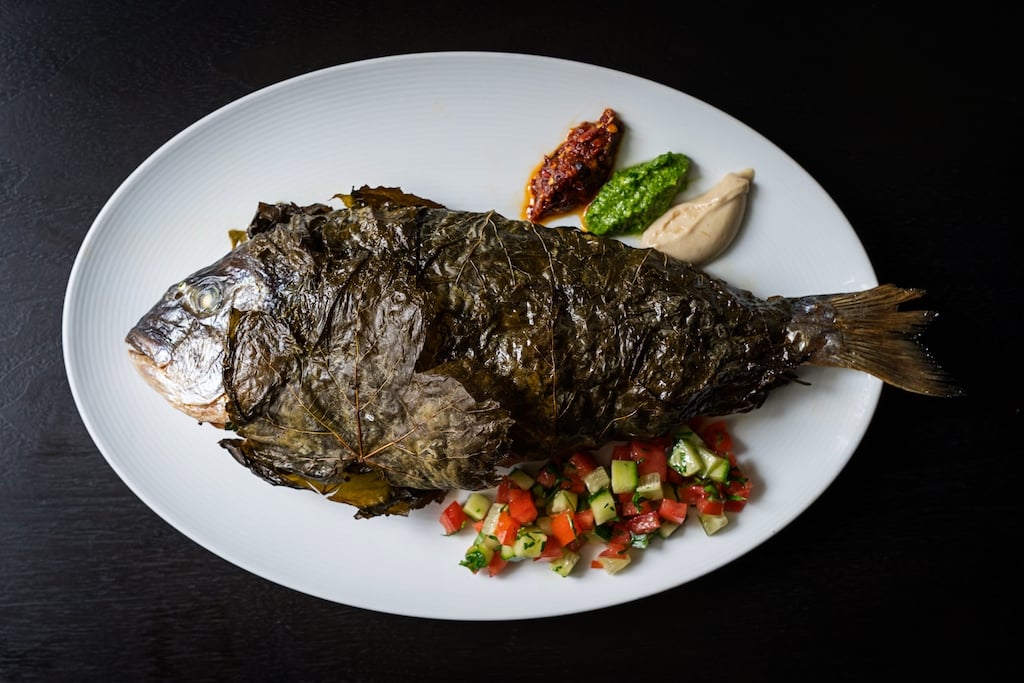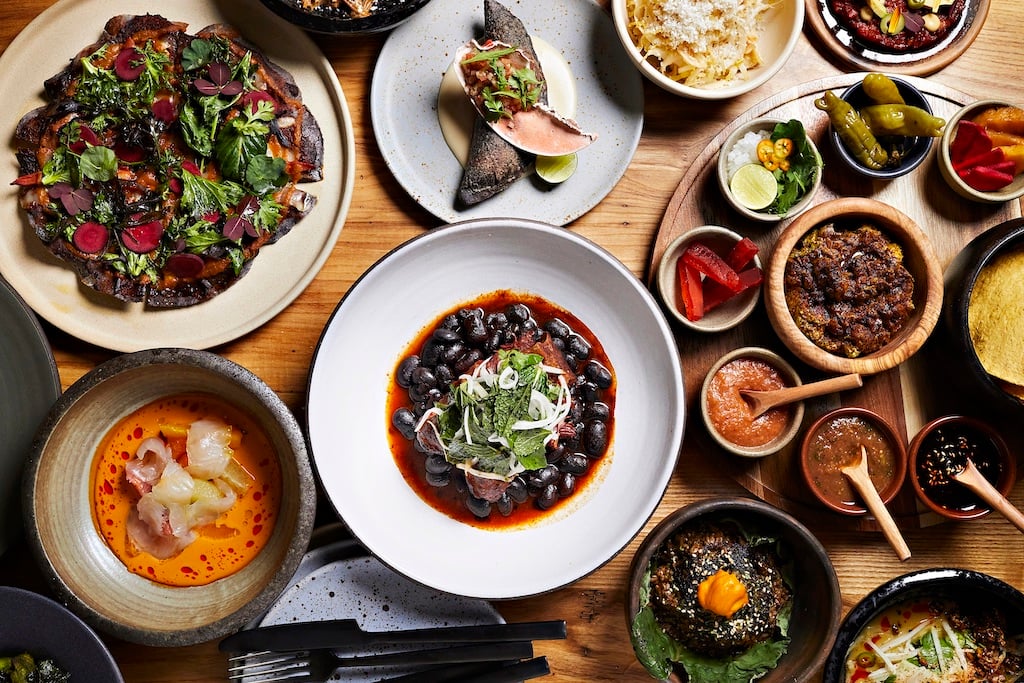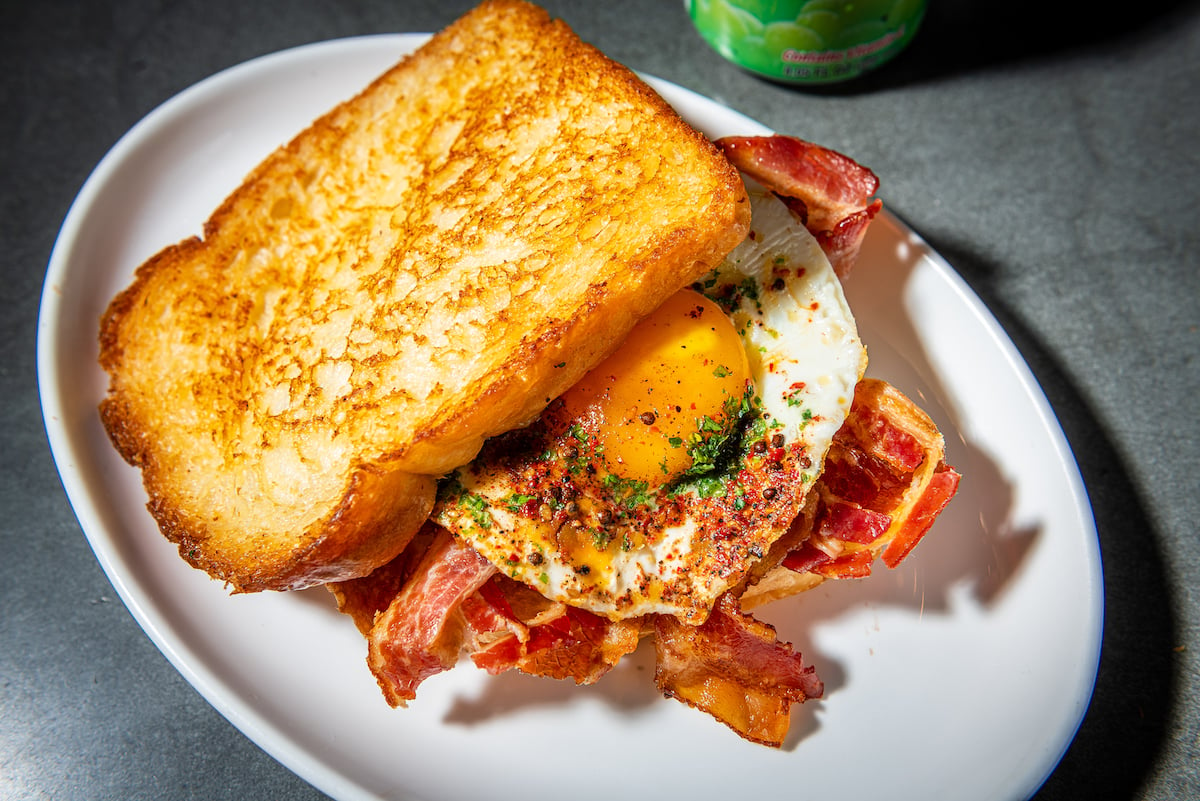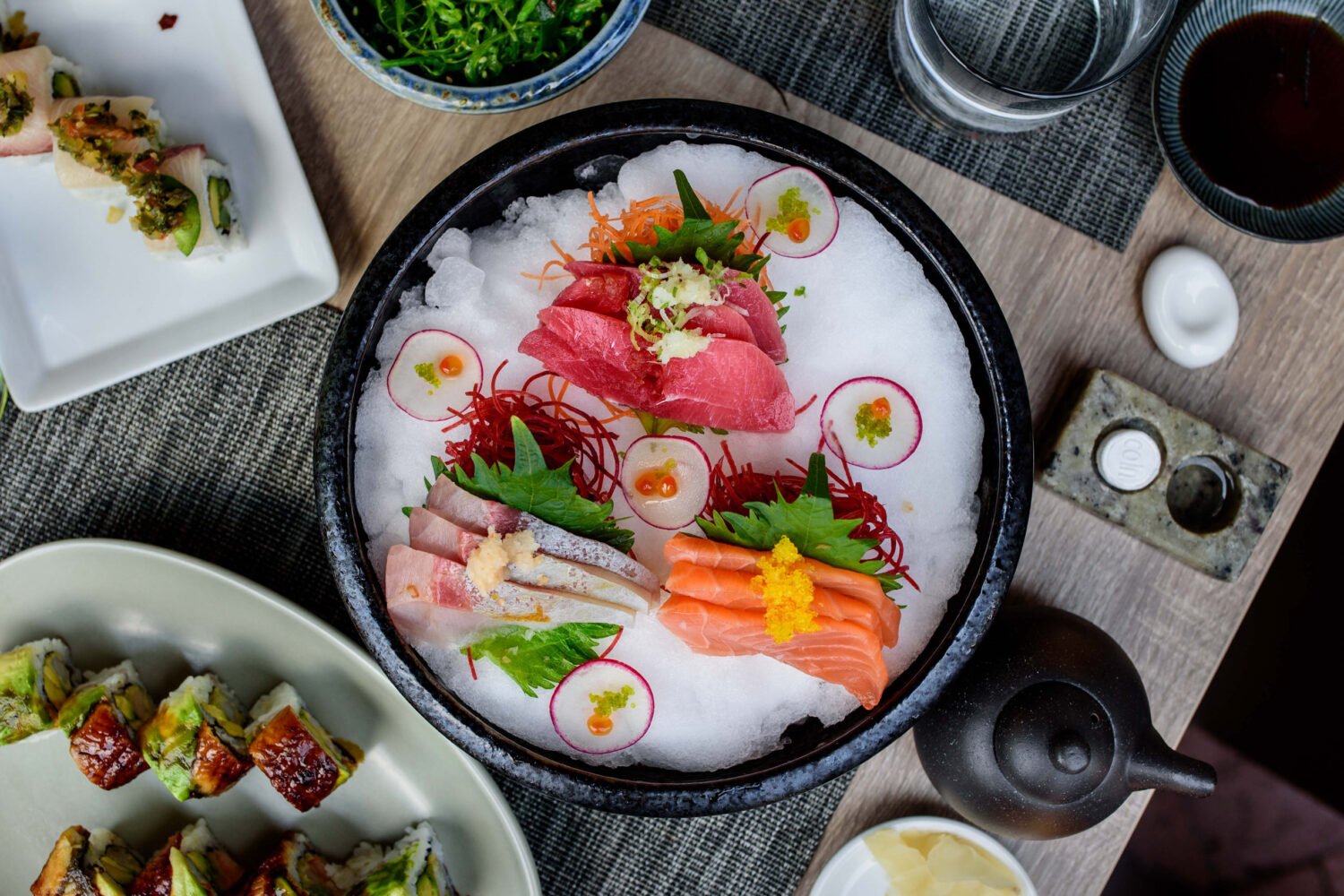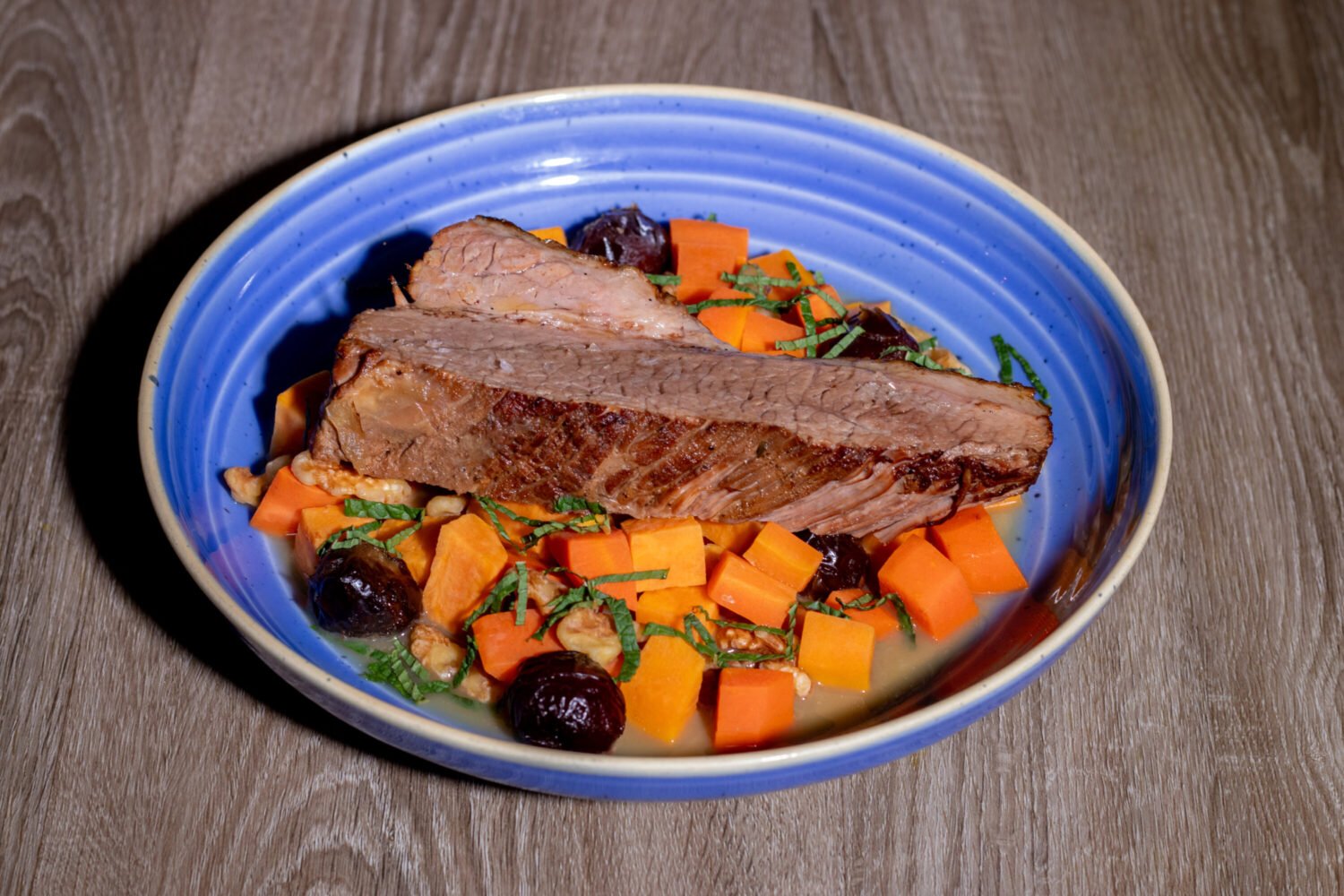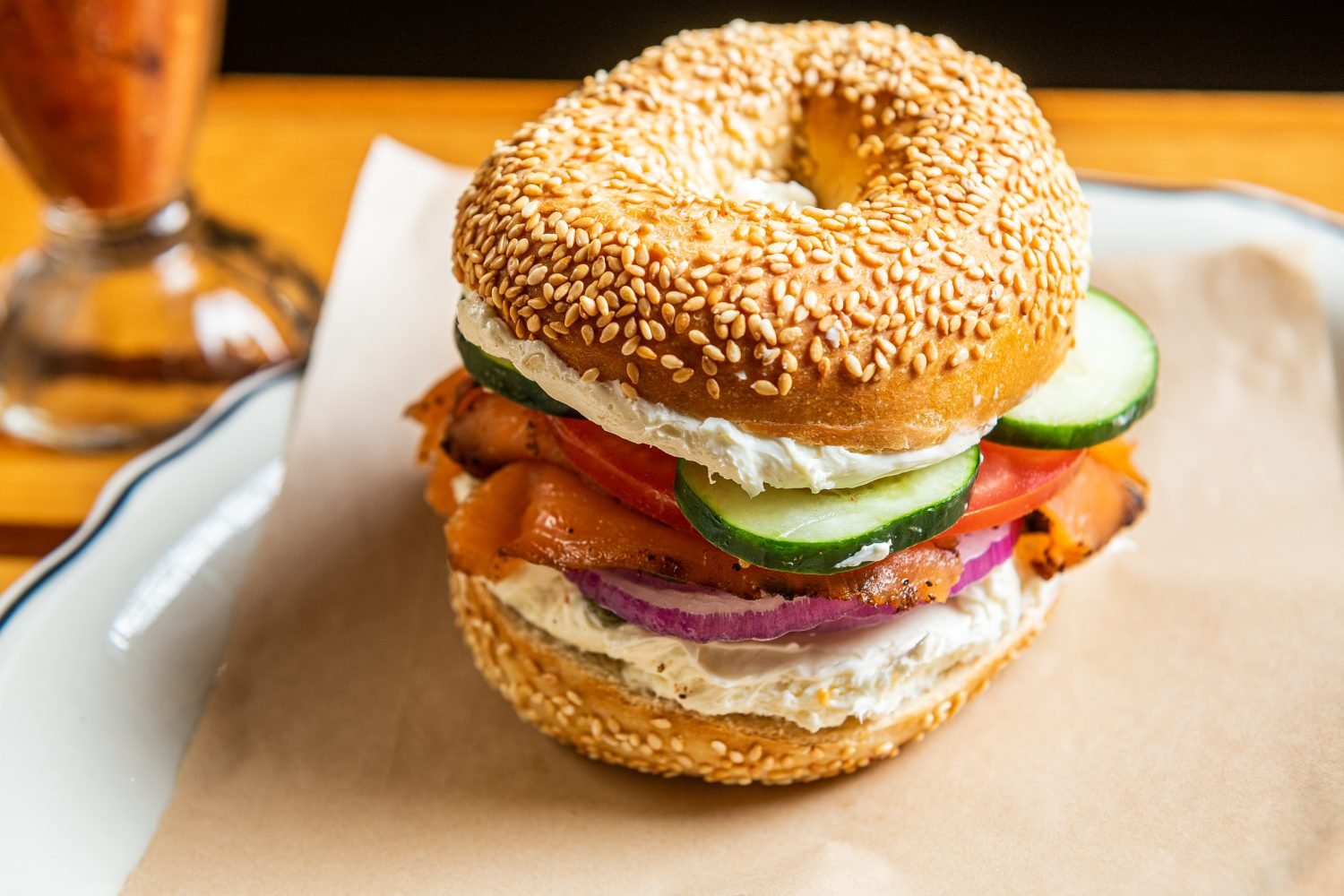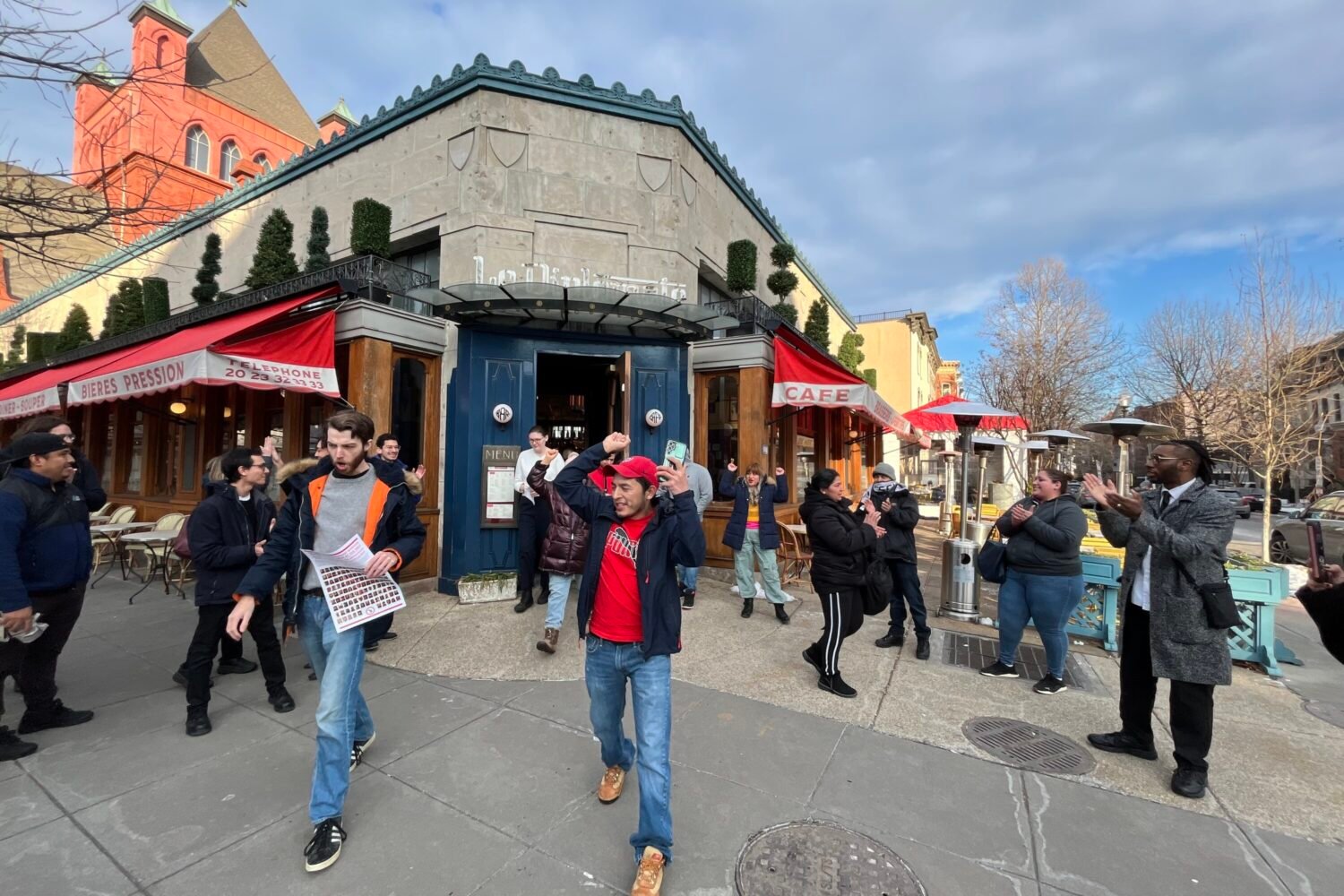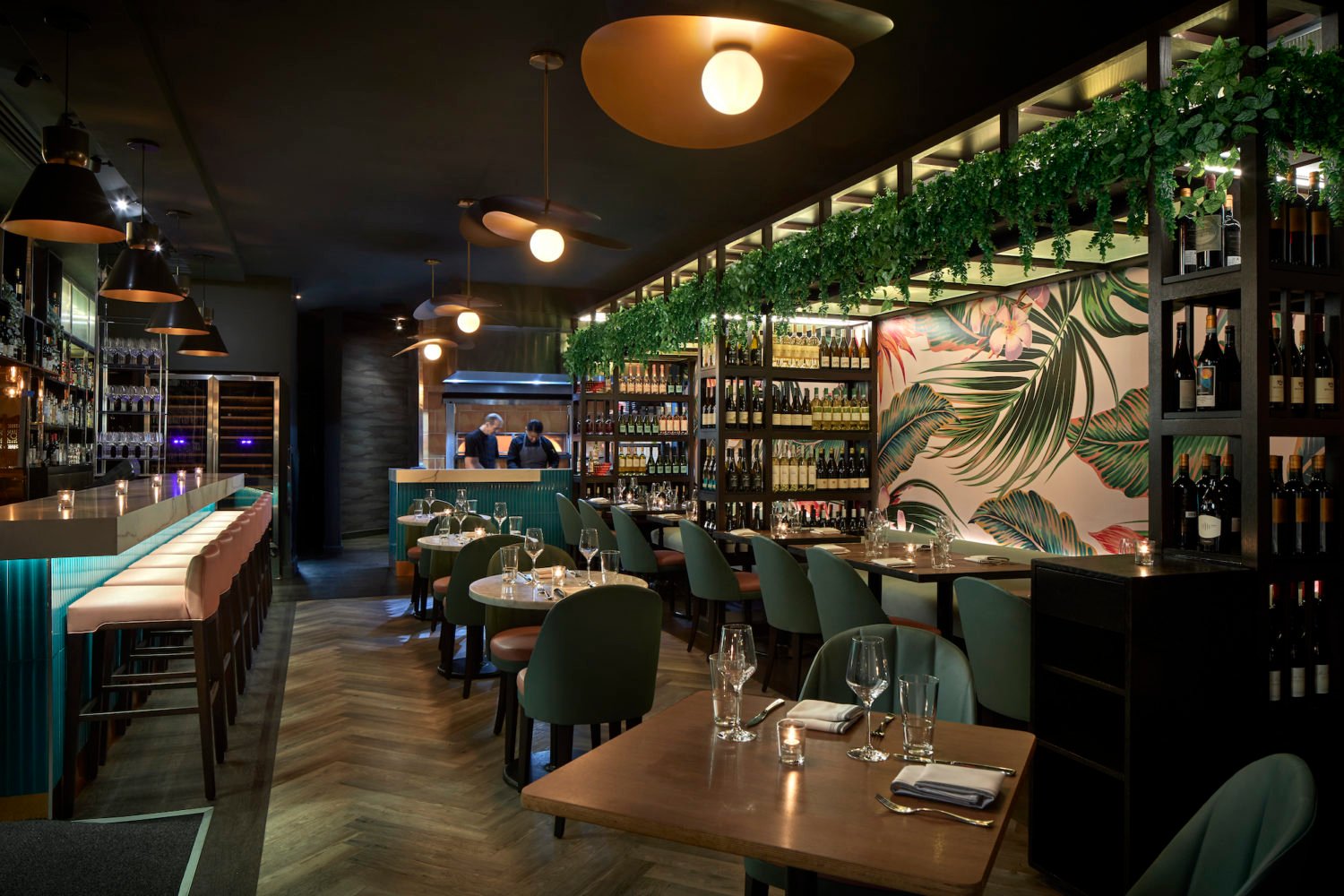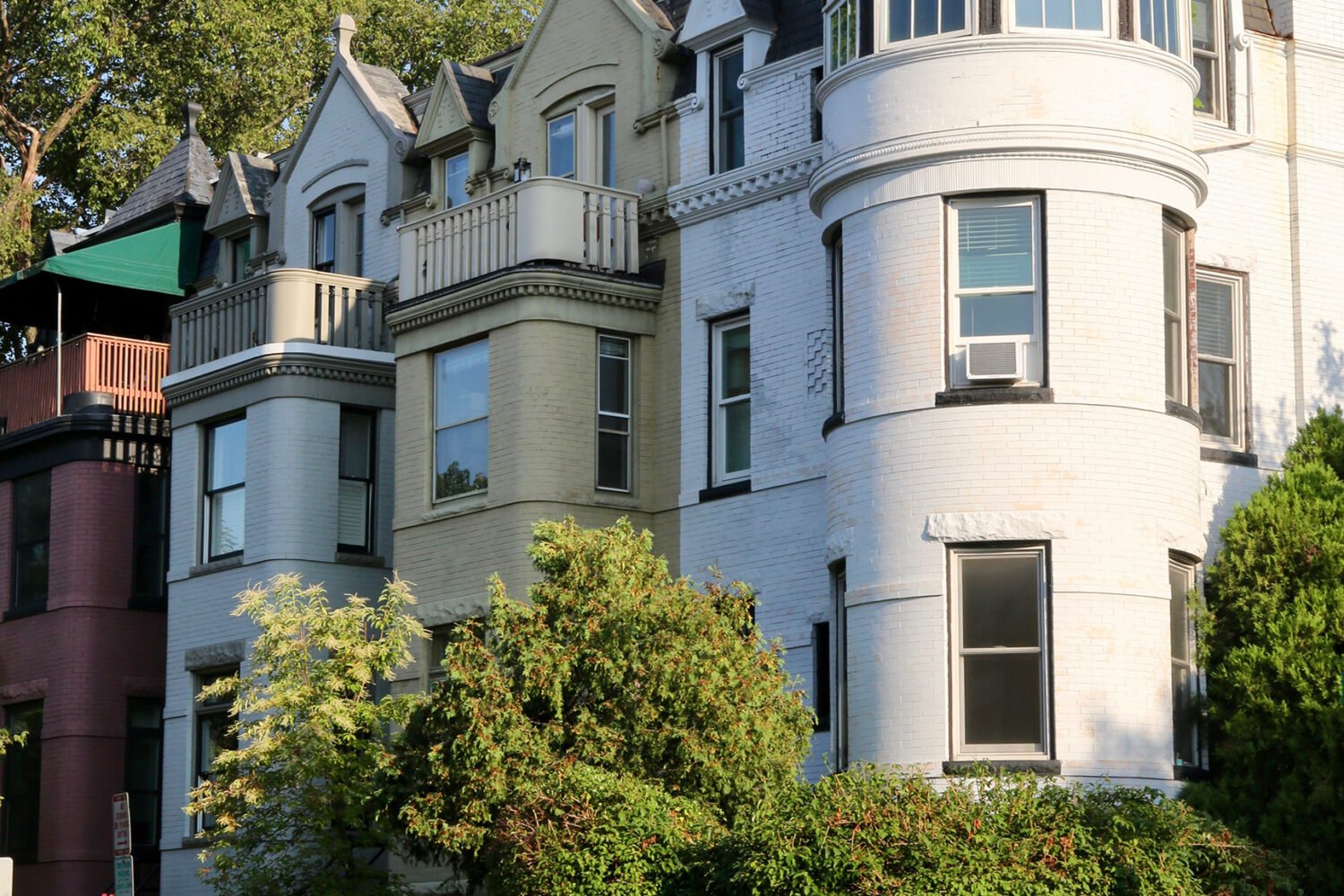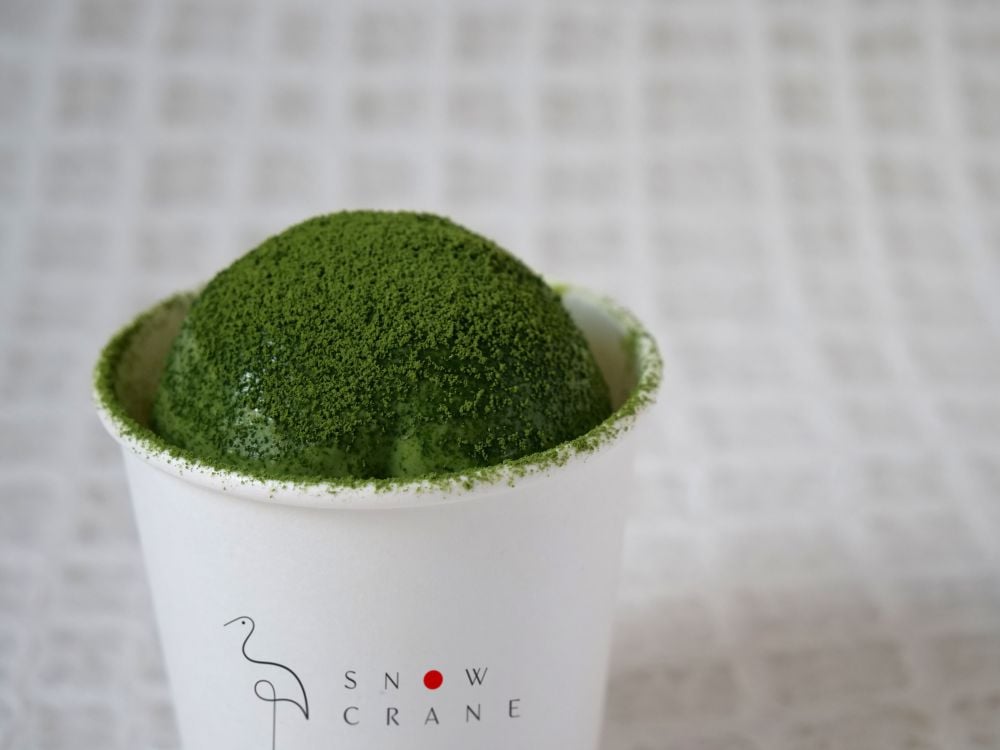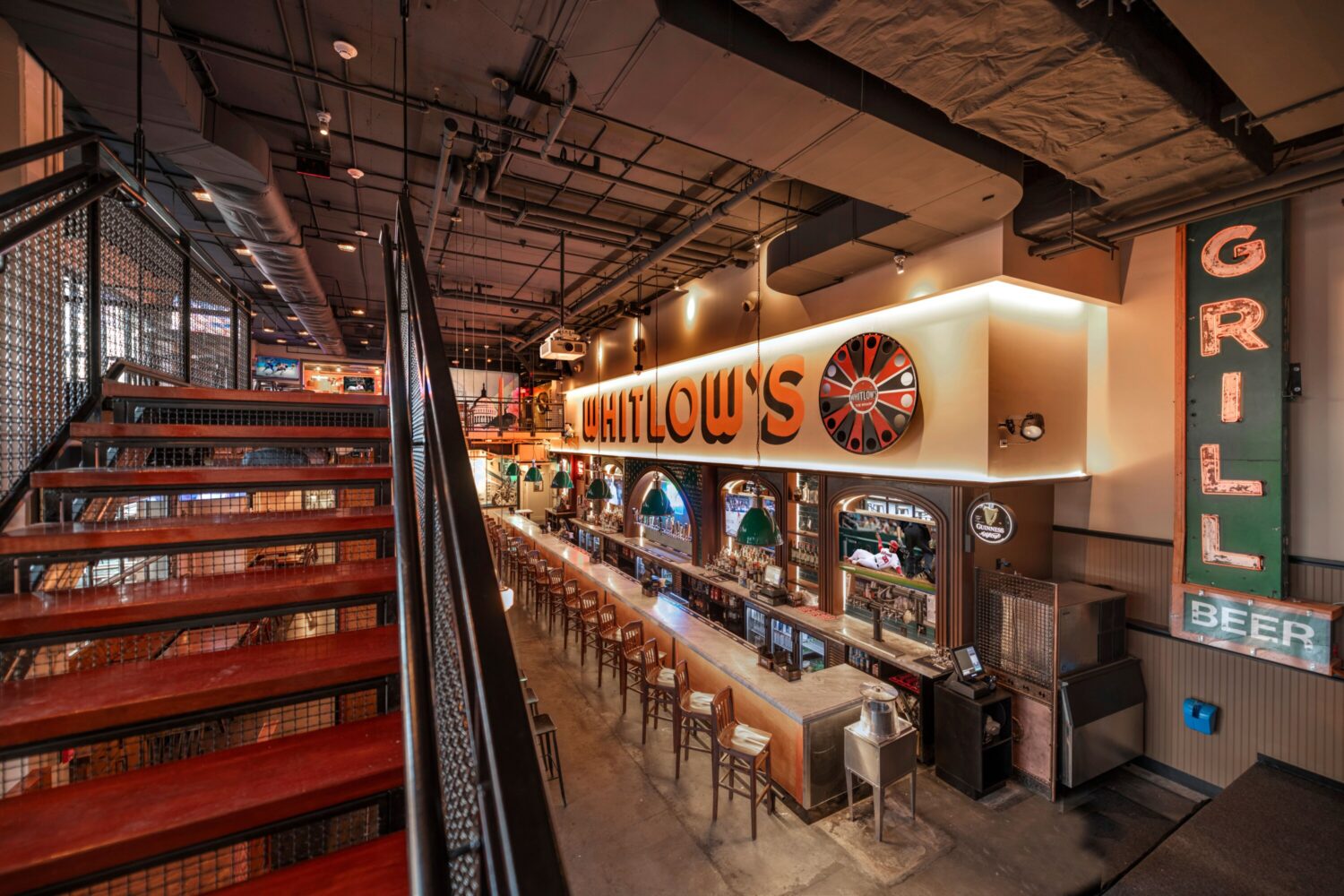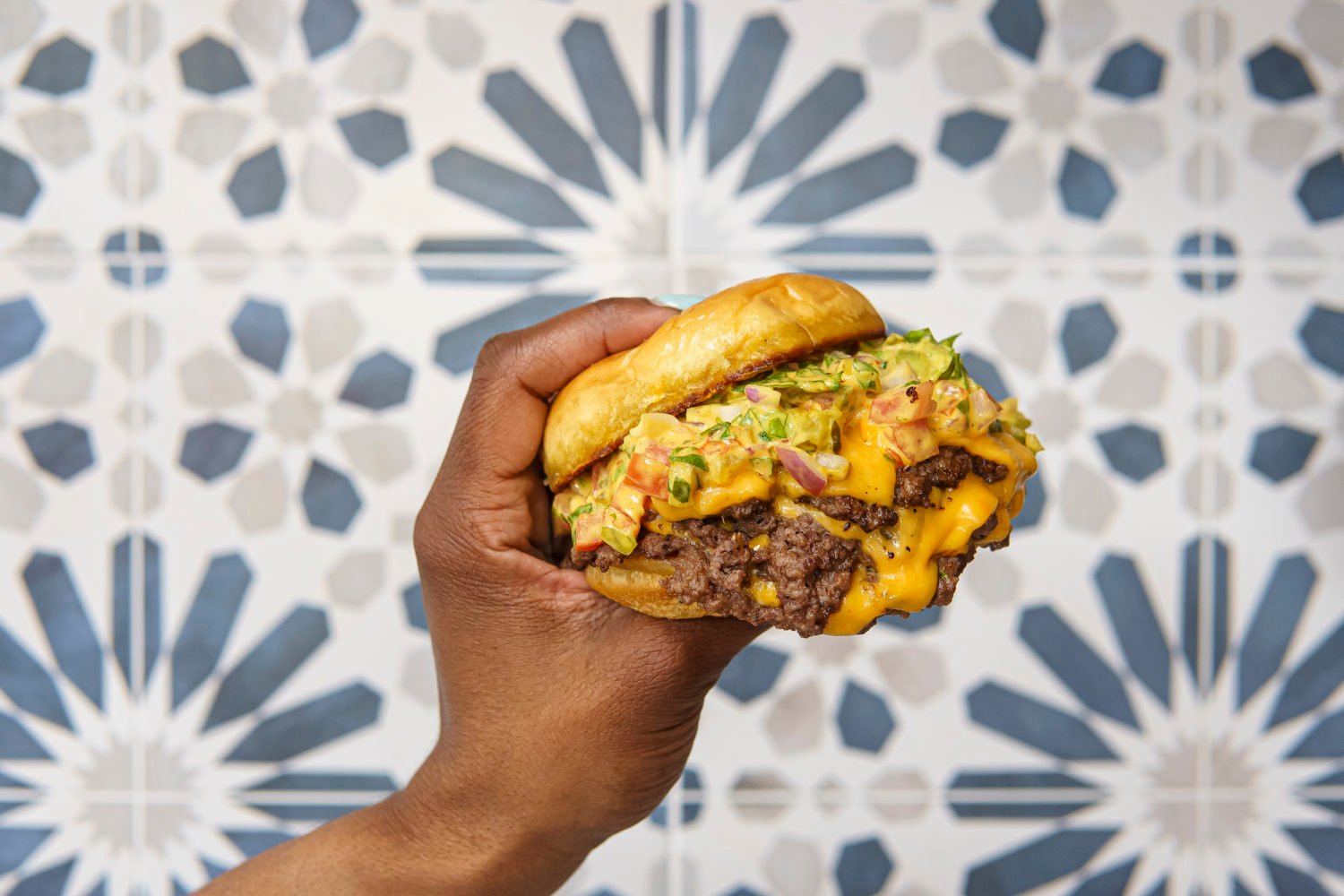New York’s food obsessives are all about modern Israeli-influenced spots like Nur. A culinary trip to Philadelphia demands a stop at Jerusalem-styled Zahav. New Orleans is buzzing over James Beard-anointed Shaya. So when is the Israeli food trend coming to DC, beyond fast-casual—that’s not a ding, they’re stellar—spots like Little Sesame hummus shop (reopening soon) and vegan spot Shouk?
Give it two, maybe three weeks.
That’s about how long restaurateur Ashok Bajaj he’ll need to transform the Cleveland Park space occupied by Ardeo + Bardeo for two decades into Sababa, a modern Israeli restaurant. Like adjoining Indian street food joint, Bindaas, the name is slang for “cool”—this time in Hebrew. Though the cuisines are worlds apart, the duo are meant to compliment each other in approachable pricing and style.
“When I opened Bindaas I saw the popularity of the food and how people are eating in the neighborhood,” Bajaj says. He says he considered a number of family style-friendly cuisines, including more general Mediterranean, but was enticed by Israeli cuisine’s vibrancy after a recent trip to Jerusalem, Tel Aviv, and the West Bank.
“Israel has influence from all over—it’s a multi-cultural cuisine, and that’s what excites me,” he says.
Bajaj is no stranger to dabbling in different cuisines. His nine-restaurant Knightsbridge Hospitality Group ranges from finer-dining Indian (Rasika, Bombay Club) to the New American Oval Room and Italian Bibiana. For Sababa, he’s hired chef Ryan Moore, who’s cooked at Zaytinya and the shuttered Rogue 24, and was most recently at Bistro Provence in Bethesda.
Sababa’s menu loosely mirrors Bindaas’ in style, with menus of small and larger plates that can easily be shared—though family-style isn’t mandatory—and an abundance of vegetables, homemade breads, and grilled meats and seafood. Guests can start with a selection of salatim (small salads) and different styles of hummus with fresh pita bread. There will also be a variety of small plates such as shakshuka (eggs baked in a spicy sauce), Egyptian-style koshari (a dish of rice, macaroni, and lentils with zesty tomato sauce), and falafel.
Larger portions include three charcoal-grilled kabobs—marinated lamb, chicken, and seafood—plus a daily whole fish wrapped in grape leaves, braised lamb shank, and roasted chicken with sumac. Dishes generally range from $8 to $28 for big plates, with kabobs around $15 and mezze between $10 and $12.
Sababa, which is significantly larger than Bindaas, is also getting a full makeover in the next few weeks. The front of the restaurant will be outfitted with a zinc bar and low seats and tables for a cocktails-and-olives-before-dinner vibe, with Mediterranean tiles, wood screens, and draped sails throughout. An upstairs dining room can be used for private events, but on busy nights it’ll serve as overflow for both restaurants. (Though parties who wind up at an overflow table must stick with one menu.)
A final menu for Sababa is still in the works, and chances are it’ll be one that’s constantly evolving.
“Israeli cuisine gives so much more openeness to choose,” says Bajaj, who references the culinary influence of Jews, Muslims, and Christians, and food from Lebanon, Morocco, Egypt, Palestine, and Eastern Europe, among other places. “It’s very much like America. Everyone is from somewhere, and there’s no one cuisine.”

